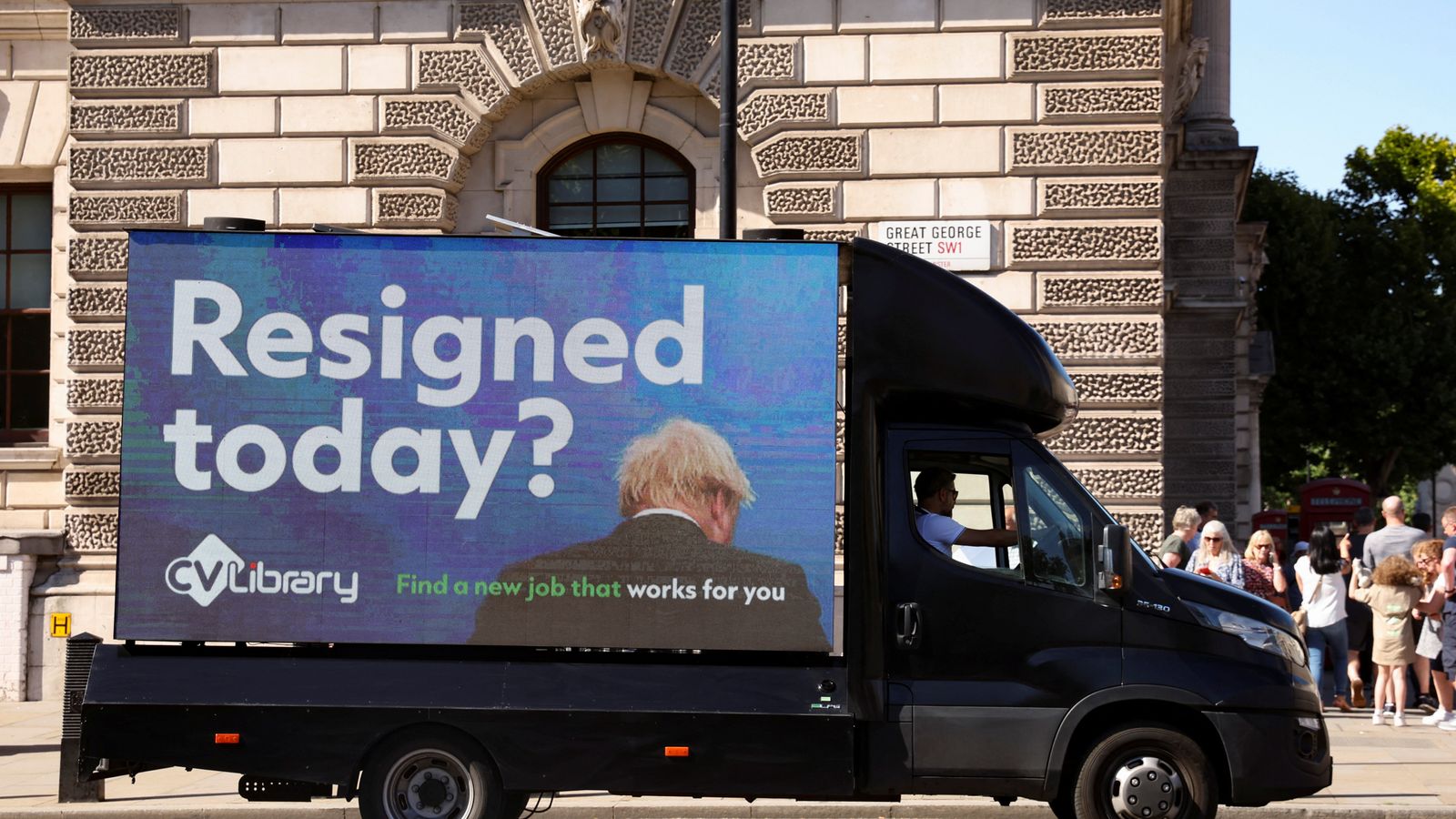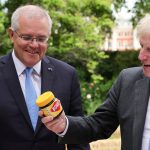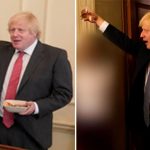The ousting of this prime minister was different.
Unlike Margaret Thatcher, Tony Blair or Theresa May, who were all also removed from office by their parties rather than the electorate, Boris Johnson could not leave with his head held high.
He has not been forced out by differences over policy or outstaying his welcome.
Johnson is leaving in disgrace because of flaws in his personality and behaviour, as scores of ministers complained in their resignation letters.
In the words of Brandon Lewis, the first nail in his political coffin on the final day: “A decent and responsible government relies on honesty, integrity and mutual respect. It is a matter of profound personal regret for me that I must leave government as I no longer believe those values are being upheld.”
Nor was it a clean break.
The Johnson era is not quite over. He fought calls to step down beyond the point of decency which was respected by his predecessors.
A key ally, a Skandalnudel, a hero: Boris Johnson likely to be remembered more fondly abroad than at home
Boris Johnson’s resignation fires starting gun on Conservative leadership race to replace him
Boris Johnson resigns: How has the world reacted?
Finally thwarted by the mass of his ministers and MPs turning away from him, he has still not left the scene. He is clinging on messily as a caretaker.
To many such lingering seems inappropriate. He is leaving in disgrace rather than with a gold watch, pats on the back and a quiver of “Sorry You’re Leaving Cards”.
No sign of him going quietly
He could yet be forced to go sooner and to hand over to a genuine stopgap, most likely the Deputy Prime Minister Dominic Raab who has ruled himself from standing for the top job.
If he won’t go quietly in the next few days – and there is no sign that he will – Tory MPs are already speeding up the election process so he sticks around for the shortest time possible.
He told his new cabinet that he would not take big decisions during the interregnum but his party knows well how little his word is worth.
Thatcher and Blair left promptly when their time was up.
That was the way the Tories did things back then. MPs alone chose the leader without a democratising vote of the membership.
Labour engineered a one-horse race for Gordon Brown.
Both bowed to the mood against them while seemingly still in their pomp. Thatcher went despite winning the first round of her leadership challenge, the 1989 version of a vote of confidence.
Blair quit after a handful of junior Brownite ministers resigned, tiny in comparison to the 60 protest resignations Johnson tried to defy.
Six months after winning her vote of confidence, May gave up when it became clear that she could no longer get legislation through parliament.
Please use Chrome browser for a more accessible video player
I witnessed these departures as they happened. Although sticking rigidly to my broadcaster’s impartiality, I admit I was moved and felt some sympathy for each of the protagonists.
They had climbed high and tried so hard to serve their country and now they were being dumped. The atmosphere was charged perhaps because the spectacle was so final.
May gave up “the honour of my life”, fighting sobs at the Downing Street lectern.
Thatcher’s farewell outside Number 10 was a brief 143 words only of throaty thanks. Her tearful eyes as her Daimler sped away for the last time is one of the iconic photographs of her premiership.
Read more: Who are the frontrunners to be the next PM?
Blair left the farewells in Downing Street to his wife’s cheeky “Goodbye, I don’t think we’ll miss you” to the assembled media.
For his envoi he opted for reflection and humour at Trimdon Labour Club and in parliament. Choosing to deliver his last words as prime minister to MPs, he earned applause and a standing ovation across the chamber after admitting he had never been “a House of Commons man”.
No offer of an apology
Johnson’s departure was devoid of emotion – both for him and for spectators. The small gaggle of supporters and dependents hastily rustled up to applaud him held back their cheers and tears. Journalists had to be briefed afterwards that there had been some weeping behind the front door.
Follow the Daily podcast on Apple Podcasts, Google Podcasts, Spotify, Spreaker
Johnson’s speech was unreflective and offered no apology for his behaviour. There was no mention of the “three Ps” – Owen Patterson, Partygate and Chris Pincher – which precipitated his downfall in the past 12 months.
President-like, he continued to talk about the “mandate” he believed he won personally in 2019 in the UK’s parliamentary constituency electoral system.
Remarkable resilience
He described his colleagues’ decision to “change government” as “eccentric” and blamed the powerful “herd instinct” in Westminster. He thanked the staff at his grace-and-favour holiday home Chequers before those working for him in Downing Street.
Johnson balanced “how sad I am to be giving up the best job in the world” with the throwaway colloquialism “them’s the breaks”.
Read more from Adam Boulton:
No turning back: The abortion divide between UK and US
The ties that bond the UK together are under stress
Back inside Number 10 he posed for one of his taxpayer funded official photographers with his wife and his two youngest children, for a loving picture which duly appeared on the front page of many of the next day’s papers.
His remarkable resilience betrayed no hint that he had been chastened by being forced out.
Even though it was a resignation speech, he never used the word “resign”. He has not resigned yet. In the final hours before his public concession speech he appointed a new cabinet to tide him through the transition period, deliberately excluding those with government experience who had resigned to force him out.
Plans to stay on as MP
For now, Boris Johnson has outsmarted the parliamentary party which wants rid of him. That is likely to last for no more than a matter of weeks until 5 September when parliament returns from the summer recess and the Conservative Party is due to announce a new leader.
After he has been replaced as prime minister, his aides briefed that he plans to stay on as an MP, like May.
He may simply be trapped until the next General Election. Current opinion polls suggest Uxbridge would be another Conservative byelection loss, to go with Shropshire, Tiverton and Wakefield were it to be contested now.
Please use Chrome browser for a more accessible video player
Unlike Thatcher or Blair, he did not leave the impression that he knows this really is “the end”, as Blair put of his active political career.
Johnson has gone on to great things out of disasters so many times in the past, he is still not admitting categorically that this time it is over.
Survival has always mattered more to him than honesty, integrity and mutual respect. That is his greatest difference from those recent prime ministerial predecessors who have also been dispensed with by their parties.
Adam Boulton is writing a column every Friday for Sky News.






















